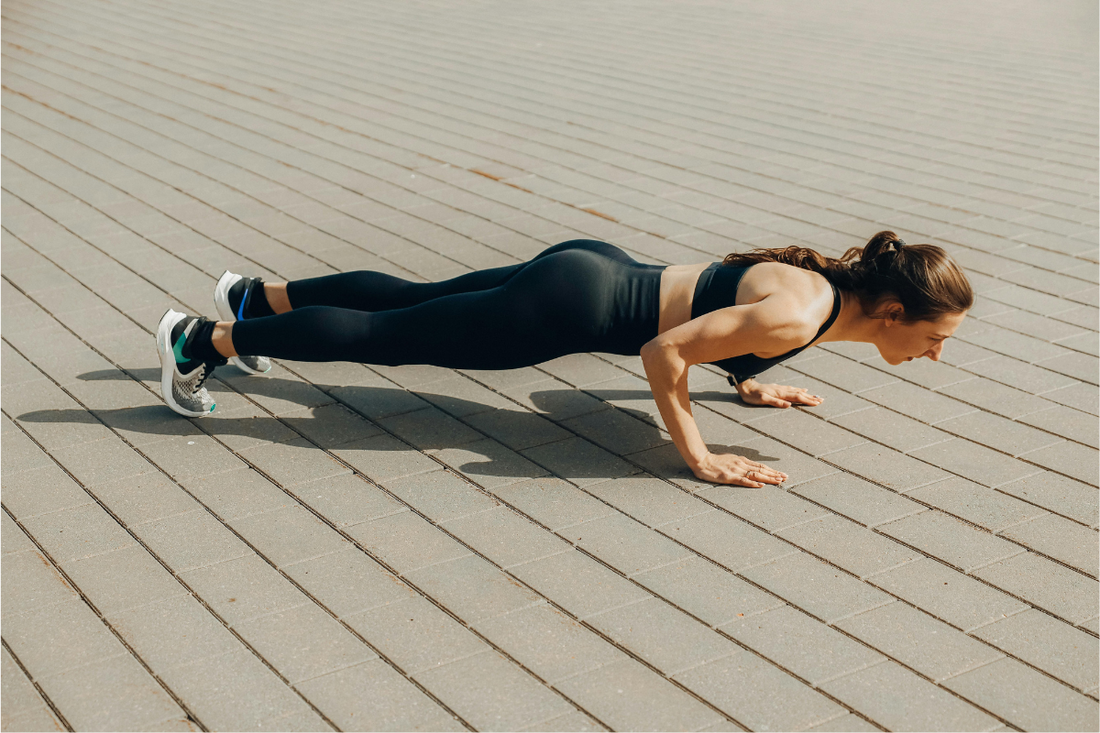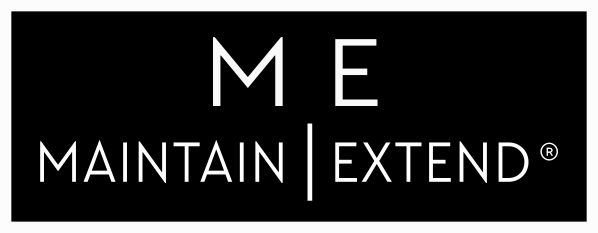
Creatine & Taurine for Women in the UK: Boost Energy, Muscle Health & Wellness At Any Age
Share
Why Creatine and Taurine Are Ideal Supplements for Women in the UK
Ladies, it’s time to rethink your supplement routine. If you’ve been led to believe Creatine Monohydrate is just for bodybuilders, think again. Creatine Monohydrate, combined with Taurine—a vital amino acid—offers a powerhouse duo supporting muscle performance and energy metabolism in active women over 40, which could help with perimenopausal wellness. Let’s explore the science-backed benefits of this combination and why Crea-tor™ from ME MAINTAIN | EXTEND® is designed with women in mind.
What Is Creatine and Why Is It Beneficial for Women?
What is Creatine?
Creatine is a naturally occurring compound made in the kidneys and liver and found in foods like meat and fish. Stored mainly in muscles, Creatine Monohydrate helps produce energy during short bursts of high-intensity exercise, such as lifting or sprinting.
Benefits of Creatine for Women
Women often hesitate to take Creatine Monohydrate fearing bulkiness or bloating, but research shows it helps build lean muscle mass, improve strength, and support energy metabolism without unwanted bulk. Creatine Monohydrate’s benefits include:
- Enhancing muscle strength, particularly in adults over 40
- Improving physical performance in short-term, high-intensity exercise
- Supports muscle function, which contributes to healthy, active ageing
- Supports overall cellular energy
Note: UK and EU regulations state a daily intake of 3g of Creatine Monohydrate for these benefits. However, a daily dose of 5g is also widely accepted and used safely to maximise effects, as supported by numerous studies.
What Is Taurine and Why Does It Matter?
What is Taurine?
Taurine is a non-essential amino acid, meaning the body can produce it from other amino acids like cysteine and methionine. However, during periods of stress, ageing, or intense activity, Taurine levels might be insufficient, so supplementation can help.
Why Taurine is Important
Amino acids are the building blocks of proteins and play vital roles in bodily functions including muscle repair, energy production, and nerve signalling. Taurine’s key roles include:
- Maintaining cellular hydration, crucial for muscle function and recovery
- Acting as an antioxidant, may help maintain electrolyte and cellular hydration during exercise
- Several biological processes, including nerve signalling and fluid balance
- Assisting neurological function and mood balance
Why Combining Creatine with Taurine Is a Smart Move
- Some research suggests Taurine may complement Creatine Monohydrate absorption
-
Taurine plays a role in various cellular functions, including hydration and muscle contraction
- Helps reduce common Creatine side effects like bloating and water retention
- Offers comprehensive support for muscle health, energy, recovery, and wellbeing
Addressing Women’s Top 20 Frequently Asked Questions About Creatine and Taurine
-
What is the best Creatine for women in the UK?
Choose micronised Creatine Monohydrate with Taurine, like Crea-tor™, for easy absorption in the body for faster results and gentle digestion. -
What is Creatine Monohydrate?
It’s the most researched and effective form of Creatine, proven safe and beneficial. -
What is the recommended Creatine dosage for women?
A daily dose of about 5g Creatine plus 1g Taurine is effective and well-tolerated. (Note: UK/EU health claims specify 3g Creatine daily for certain benefits, but 5g is widely used and allowed.) -
Is Creatine safe for women over 40?
Yes, it may help support muscle strength when used with resistance training, which is important during perimenopause and beyond.
-
Can Creatine help with weight loss?
By increasing lean muscle mass and boosting metabolism, Creatine indirectly supports fat loss. -
Does Creatine help muscle gain in women?
Absolutely; it stimulates muscle protein synthesis for lean, toned muscles. -
Does Creatine boost energy?
Yes, Creatine fuels the production of Adenosine Triphosphate (ATP), the body’s primary energy molecule, helping to support stamina and physical performance. -
Is there vegan-friendly Creatine and Taurine?
Crea-tor™ is 100% vegan and free from fillers and artificial ingredients. -
Are Creatine and Taurine powder suitable for women?
Yes! It's absolutely suitable. The Micronised Creatine Monohydrate and Taurine powder are easy to mix, absorb well and are ideal for daily use. -
Are Creatine and Taurine helpful during menopause and post-menopause?
Yes, it may help support muscle strength when used with resistance training. We have had customers say that it has helped with mood and sleep quality during hormonal changes. -
Do Creatine and Taurine improve bone health?
Some studies are exploring the relationship between Creatine and bone health, though more evidence is needed. -
Can Creatine and Taurine benefit skin and hair?
While research is still emerging, Creatine supports overall cellular energy production, which is essential for many physiological processes. -
Can Creatine and Taurine improve sleep quality?
By supporting normal nerve function and reducing fatigue, Creatine may contribute to better sleep. Some customers also report improved rest, though these are anecdotal experiences. -
Do Creatine and Taurine help your mood?
Creatine Monohydrate supports cellular energy production, which plays a role in maintaining normal neurological function and overall wellbeing. Some customers report improved sleep and mood, though these effects are anecdotal and not confirmed by current health claims. -
Are Creatine and Taurine good as a pre-workout?
Yes, it improves strength and endurance during workouts. -
Does Creatine and Taurine aid post-workout recovery?
Creatine replenishes muscle energy stores, speeding recovery and reducing soreness. While Taurine is key for cellular hydration. -
Are Creatine and Taurine safe for women over 50?
Yes, it helps combat age-related muscle loss and supports overall vitality. -
Does Creatine cause bloating in women?
Taurine helps reduce bloating and micronised Creatine is gentler on digestion. -
What is Taurine’s role in muscle and energy?
Taurine supports hydration and endurance, enhancing exercise capacity. -
Can I take Creatine and Taurine during pregnancy?
There’s limited research on Creatine and Taurine use during pregnancy. Although considered generally safe, it’s best to consult a healthcare professional before supplementing while pregnant.
Why Choose Crea-tor™ from ME MAINTAIN | EXTEND®?
Our formula combines premium micronised Creatine Monohydrate with pure Taurine to maximise bioavailability and minimise side effects. It is:
- Vegan-friendly
- Unflavoured and easy to mix
- Third-party tested for purity and potency
- Formulated with a focus on women’s unique health needs, yet equally appropriate for men
Conclusion
Crea-tor™ offers a scientifically-backed, effective combination of Creatine Monohydrate and Taurine that supports muscle health, energy, recovery, and wellbeing for women at every stage of life. Whether you’re managing perimenopausal symptoms, aiming to boost fitness, or seeking overall vitality, this supplement is a smart choice.
Ready to power your health?
➡️ Learn more about Crea-tor™ from ME MAINTAIN | EXTEND® today and start your journey to stronger, healthier living.
Safety and Disclaimer:
The advice in this article is for informational purposes only and does not constitute medical advice.
Creatine Monohydrate and Taurine are generally regarded as safe for most healthy adults when consumed within the recommended dosages.
Before trying any new supplement, it is important to consult with your General Practitioner (GP) or healthcare professional, especially if you are pregnant, breastfeeding, taking medication, or under medical supervision. Food supplements should not be used as a substitute for a varied and balanced diet and a healthy lifestyle.
While we strive for accuracy and balance, please note that this blog may discuss products available for purchase through ME MAINTAIN | EXTEND®. Always consult a healthcare professional before making any health-related decisions.
Clinical Research
2. Kreider & Stout. Nutrients. 2021;13(2):447. Creatine in Health and Disease.
18. Singh et al. Science. 2023;380(6649):eabn9257. Taurine deficiency as a driver of aging.
24. Ripps & Shen. Mol Vis. 2012;18:2673-86. Review: Taurine: A “very essential” amino acid.
26. Kurtz et al. J Int Soc Sports Nutr. 2021;18(1):39. Taurine in sports and exercise.
